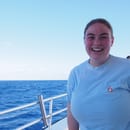*Originally published in the 2017 Newsletter for the U.S.-Pakistan Centers for Advanced Studies in Energy*
Asad Ali and Waqar Ali, both graduate students from UET Peshawar, recently published a seven page research paper in a scientific journal named, Solar Energy Materials and Solar Cells, about the effects of certain types of coatings on solar cells.
Asad and Waqar are Pakistani’s whom were part of the U.S.- Pakistan Centers for Advanced Studies in Energy, (USPCAS-E). USPCAS-E is a program by USAID, hosted at Arizona State University, (ASU). The program provides Pakistani students the opportunity to focus on pertinent research towards Pakistan’s energy needs and fosters in creating skilled graduates in energy research.
The basis of Asad’s and Waqar’s publication encompassed research on a new coating on the surface of solar cells that reduces reflection losses and traps more light. Typically, solar cells are covered in ‘Anti Reflective Coatings’ which are not as renewable as the new coating. Asad and Waqar, as well as the rest of their ASU collaborators, worked to fabricate the layers of the cells with different textures that they hoped would create optimal results. The difference between Asad’s and Waqar’s research was the testing of the final product; Asad’s work focused more on electrical properties while Waqar concentrated on optical properties.
(Asad Ali, photo credits: U.S.- Pakistan Centers for Advanced Studies in Energy.)
Asad remarked in regards to the improved solar cell that, “It is significant in that it has improved the efficiency of those solar cells by 10% relative value without increasing their cost.” With their research, Asad and Waqar concluded that there will be new manufacturing techniques involved to create such solar cells.
Their ongoing research, that took approximately half a year to publish, will be beneficial to the solar industry in Pakistan, specifically for the Pakistan Council for Renewable Energy Technology, because its research advances the study of solar energy.
“Solar cells are a very hot topic for research in our country and after getting in depth knowledge, we will be able to work on research in a similar field as well as continue the same research,” Waqar remarked. Pakistan is currently in the midst of one of the worst energy crises in history, with many of the villages suffering over twelve hoursof outages daily.
Their paper was published on June 30th 2017. The journal is designed to spread the research results on material science and technology related to photovoltaic, photothermal and photoelectrochemical solar energy conversion. Additionally, their paper received an overall impact factor of 4.78 out of 5, which measures the scientific contribution to the research.
(Waqar Ali, photo credits: U.S.-Pakistan Center for Advanced Studies in Energy)
Asad and Waqar worked alongside USPCAS-E researcher, Dr. Zachary Holman, who is the Assistant Professor at the Energy Materials School of Electrical Computer and Energy Engineering at ASU. Asad noted that, “Holman is the most intelligent, sincere, cooperative, and efficient supervisor.” Waqar agreed by also adding, “He not only transferred his academic knowledge to us but acted as a mentor in our life. It was a great privilege to work under his supervision.”
Looking ahead, Asad hopes to work in the solar industry, continue researching solar technology as a PhD scholar, and one day establish his own solar company in Pakistan. “USPCAS-E has provided me a path to meet such tremendous people and end up in this research work,” Asad emphasized.
Meanwhile, Waqar hopes to start a small setup of solar related materials that can be utilized by other solar companies. His dream is that his startup will become so substantial, it produces economical, reliable, and long lasting solar panels. While reflecting on his research at ASU, Waqar remarked, “I had always been interested in renewable energy as I am a big advocate of clean and green energy. This research will help people adopt cleaner energy.”


